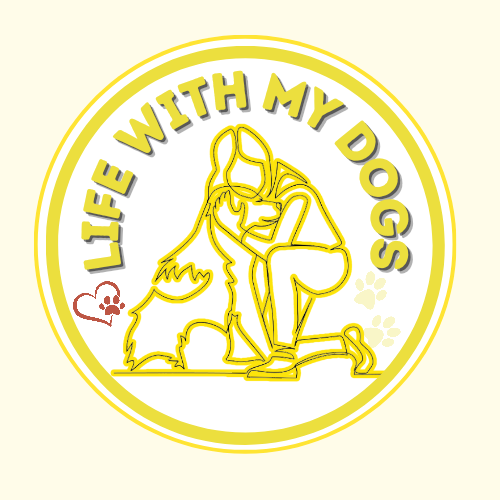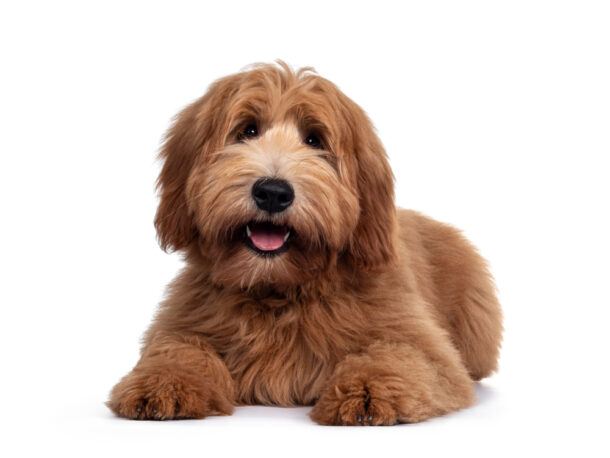LifeWithMyDogs is supported by our audience. When you purchase through one of our links, we may earn a small affiliate commission. As an Amazon Associate I earn from qualifying purchases. Your cost is not affected.
**********
Bang! Boom! Crackle! Hiss! Sizzle! Whistle! Those fireworks create beautiful displays! And at holiday times, it seems like someone’s always setting off fireworks! While we humans might enjoy the sparkly show, our dogs? Not so much. They absolutely hate the loud bangs and whistles, and honestly, I can’t say I blame them. It must be terrifying. And that’s especially true since dogs have much more sensitive hearing than people.
Over the years, we’ve learned that the best way to help our dogs cope is to create a peaceful escape from the noise – a little “fireworks-free zone” where they can relax and feel safe. If your dog turns into a quivering mess at the first sound of a firecracker, this article is for you. I’ll share all our secrets for creating a dog-friendly haven, plus some other tips to help your furry friend through those noisy holiday nights.
The Superior Hearing of Dogs: A Closer Look
Dogs have significantly better hearing than humans in a few key ways:
-
Wider Frequency Range: Dogs can hear a much wider range of frequencies. While humans typically hear between 20 Hz and 20,000 Hz, dogs can hear from around 40 Hz to 60,000 Hz. This means they can pick up on sounds that are both higher and lower than what we can perceive. Think dog whistles—we can’t hear them, but dogs certainly can!
Greater Sensitivity: Dogs can hear quieter sounds than humans. They can detect sounds at much lower decibels, meaning they can hear things we might miss entirely. This is partly due to their ear structure, which is designed to capture and amplify sound waves more effectively.
Superior Sound Localization: Dogs are masters at pinpointing the exact location of a sound. Their mobile ears help them to hone in on sounds with incredible accuracy. This is an evolutionary advantage that helped their ancestors as hunters.
Think of it this way: Imagine you’re at a concert. You hear the music, the crowd, and maybe some chatter around you. Now imagine a dog at that same concert. They’re not only hearing all of that, but also the faintest rustle of a candy wrapper across the stadium, the squeak of someone’s shoes, and the high-pitched whine of the stage lights. They can also tell exactly where each of those sounds is coming from!
This heightened sense of hearing is why fireworks can be so distressing for dogs. The loud, high-pitched bangs and crackles are much more intense and overwhelming for them than they are for us.
Holiday Fireworks and Your Dog: Keeping Pets Calm and Safe
The holidays are here, and that means fireworks! While we enjoy the colorful displays, our furry friends might not share our excitement. Dogs often get scared by the loud noises and bright flashes of fireworks.
To keep your dog calm during fireworks, create a safe space, use calming techniques, and consider medication if needed.

Many dogs feel anxious when they hear fireworks. They might bark, hide, or even try to run away. It’s important to help your dog feel safe and comfortable during these events.
By planning ahead and using some simple tricks, you can make the holiday season less stressful for your pup.
There are many ways to help your dog cope with fireworks. You can play calming music, use special vests that make them feel secure, or give them treats to distract them. Some dogs might need medication from the vet to help them relax. With a little prep, you and your dog can both enjoy the holidays without worry.
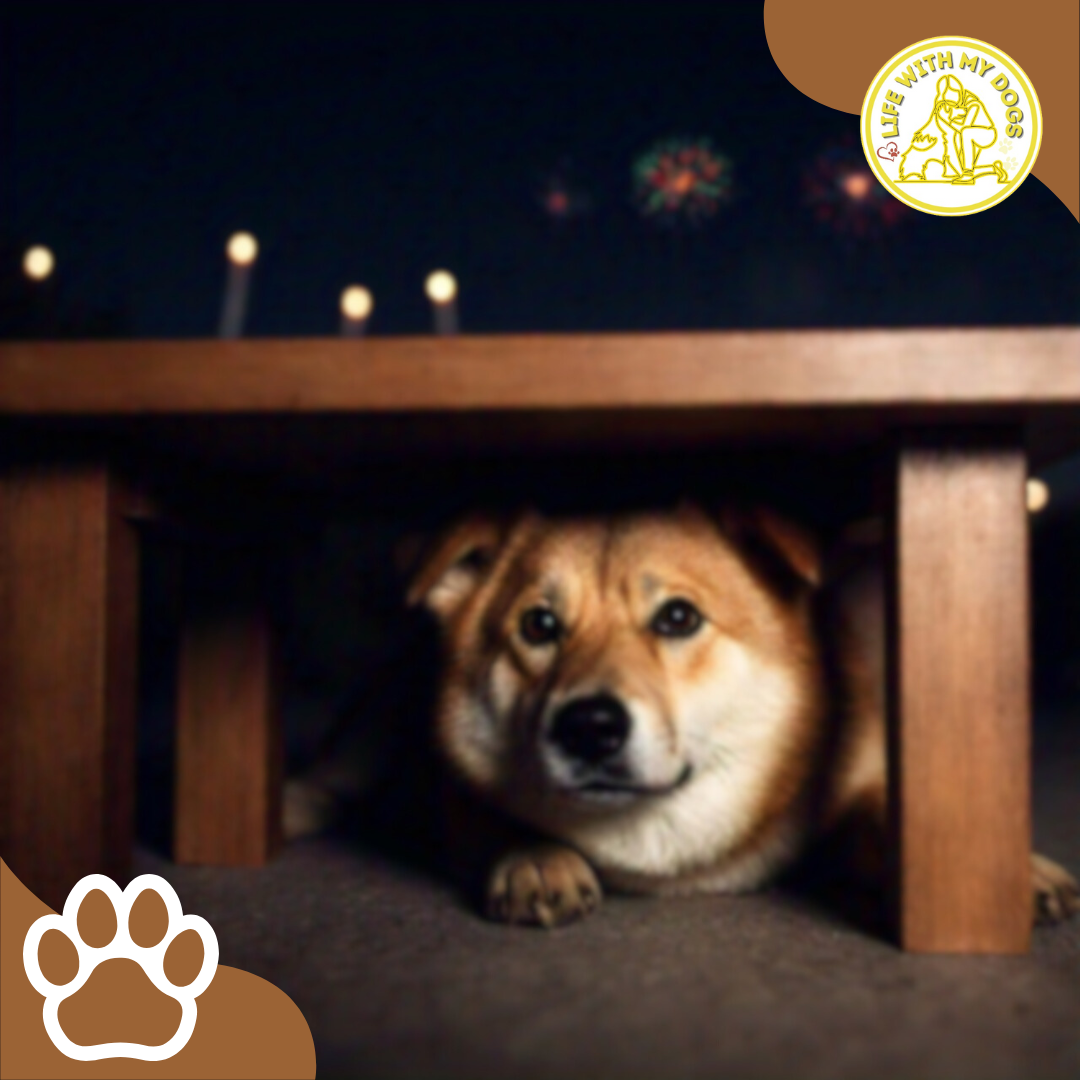
Key Takeaways
- Create a safe, quiet space for your dog during fireworks
- Use calming techniques like music, treats, or special vests
- Talk to your vet about medication if your dog gets very anxious
Understanding Your Dog’s Fear of Fireworks

Dogs often get scared by fireworks. This fear can show up in different ways and have a big impact on your pet. Let’s look at how to spot anxiety in dogs and why loud noises affect them so much.
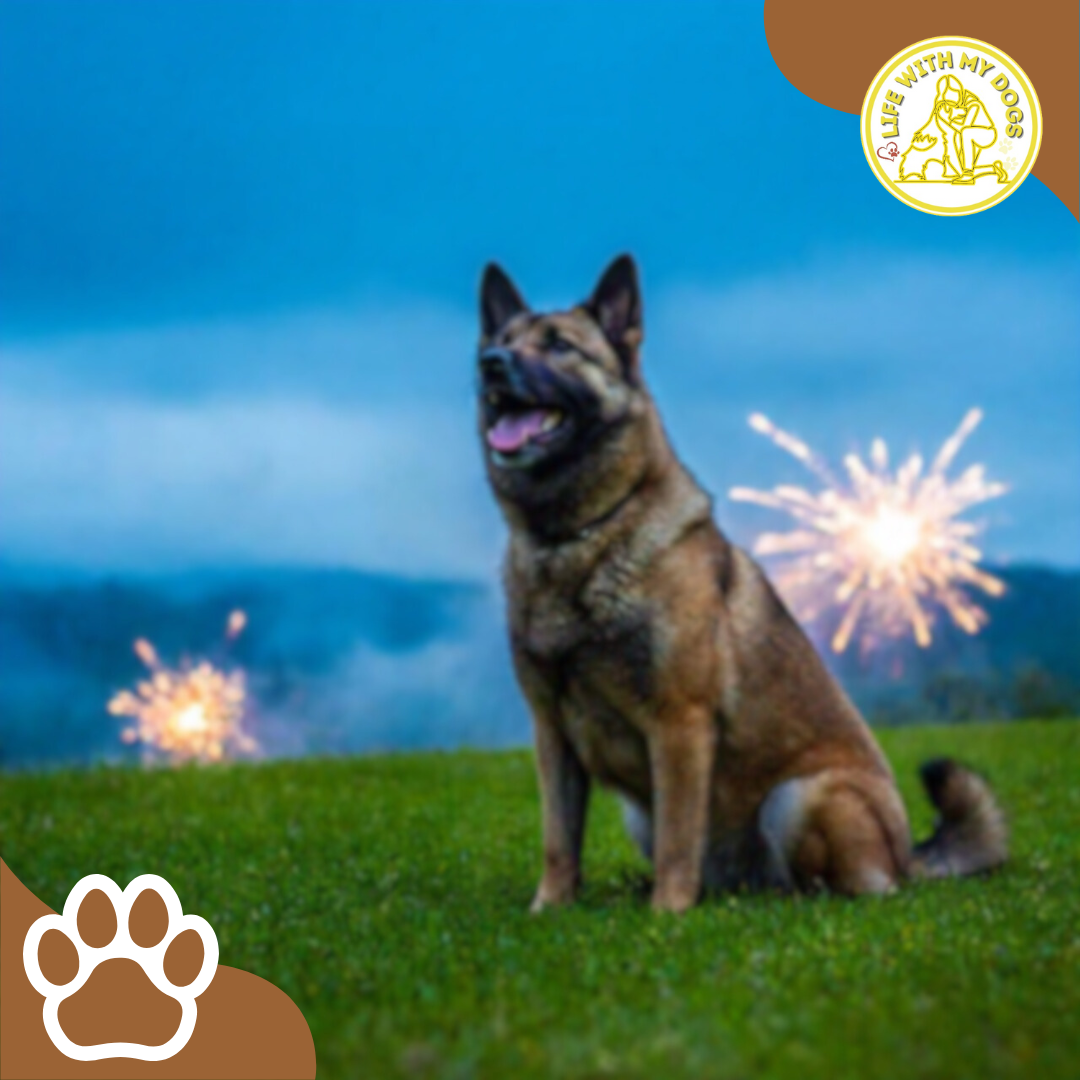
Signs of Anxiety in Dogs
You might notice your dog acting strange when fireworks start. Trembling, hiding, and pacing are common signs of stress. Your pup may also bark or whine more than usual.
Some dogs try to escape or hide under furniture. Others might stick close to you for comfort. Watch for drooling, yawning, or licking lips – these can also mean your dog is worried.
If your dog refuses treats or toys they normally love, it’s a clear sign they’re upset. Pay attention to any change in your dog’s normal behavior during fireworks.
The Impact of Loud Noises on Pets
Fireworks are very loud to dogs. Their ears are much more sensitive than ours. What sounds fun to you can be scary and painful for your pet.
The sudden booms and flashes of fireworks can trigger your dog’s fight-or-flight response. This makes their body react like there’s real danger nearby.
Some dogs might connect the sound with bad memories. This can make their fear even worse over time.
The stress from fireworks can affect your dog’s health. It might cause stomach upset or make existing health problems worse. In extreme cases, scared dogs might even hurt themselves trying to escape.
Preparation Before the Firework Season

Getting ready for fireworks season takes time and effort. Start early to help your dog feel safe and calm when the big booms happen.
Desensitization Training for Your Dog
Start desensitization training weeks before fireworks season. Play recorded firework sounds at a low volume while giving your dog treats. Slowly increase the volume over time.
Make the sounds a fun part of playtime. Use toys and games to keep your dog happy during the noise.
Try different firework sounds. Some dogs react more to whistles, others to booms. Mix it up to cover all bases.
Keep sessions short and fun. Stop if your dog gets stressed. With patience, your pup can learn fireworks aren’t so scary.
Creating a Safe Space
Set up a cozy spot where your dog feels secure. Pick a quiet room away from windows.
Add comfy bedding and your dog’s favorite toys. Use blankets to muffle outside noise.
Try calming music or white noise to drown out fireworks. Some dogs like the TV on for distraction.
Let your dog use this space anytime. Make it a positive place with treats and praise.
Practice going to the safe space before fireworks start. This helps your dog know where to go when scared.
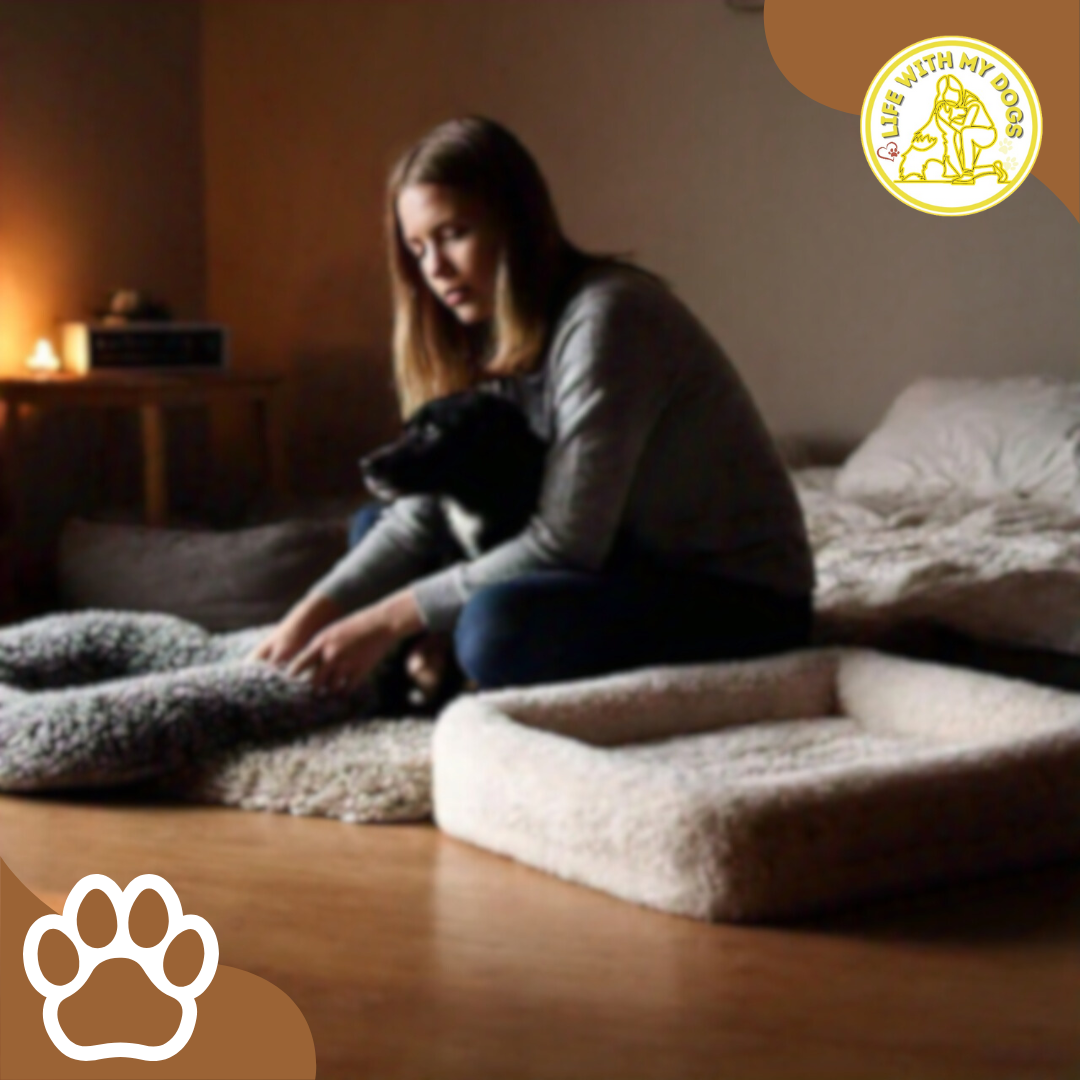
Proper Identification Measures
Update your dog’s microchip info. Make sure your contact details are current.
Get a sturdy collar with clear ID tags. Include your phone number and address.
Take a recent photo of your dog. It helps if they get lost during fireworks.
Consider a GPS collar for extra safety. You can track your dog if they run away.
Check your yard for escape routes. Fix any holes in fences before firework season starts.
Caring for Your Dog During Firework Events

Fireworks can be scary for dogs. You can take steps to keep your pup calm and safe. Here are some ways to help your furry friend during firework events.
Calm A Dog During Fireworks
Create a safe space for your dog before the fireworks start. Pick a quiet room away from windows. Add comfy blankets and toys. Play white noise or calming music to mask the sounds outside.
Keep your dog inside during fireworks. Take them for a walk earlier in the day. Give them a potty break before the noise starts.
Stay with your dog if you can. Your presence can be very comforting. Act calm and normal. Don’t make a big fuss over the noise.
Try distracting your dog with games or treats. A frozen Kong toy can keep them busy. Puzzle toys are great too.
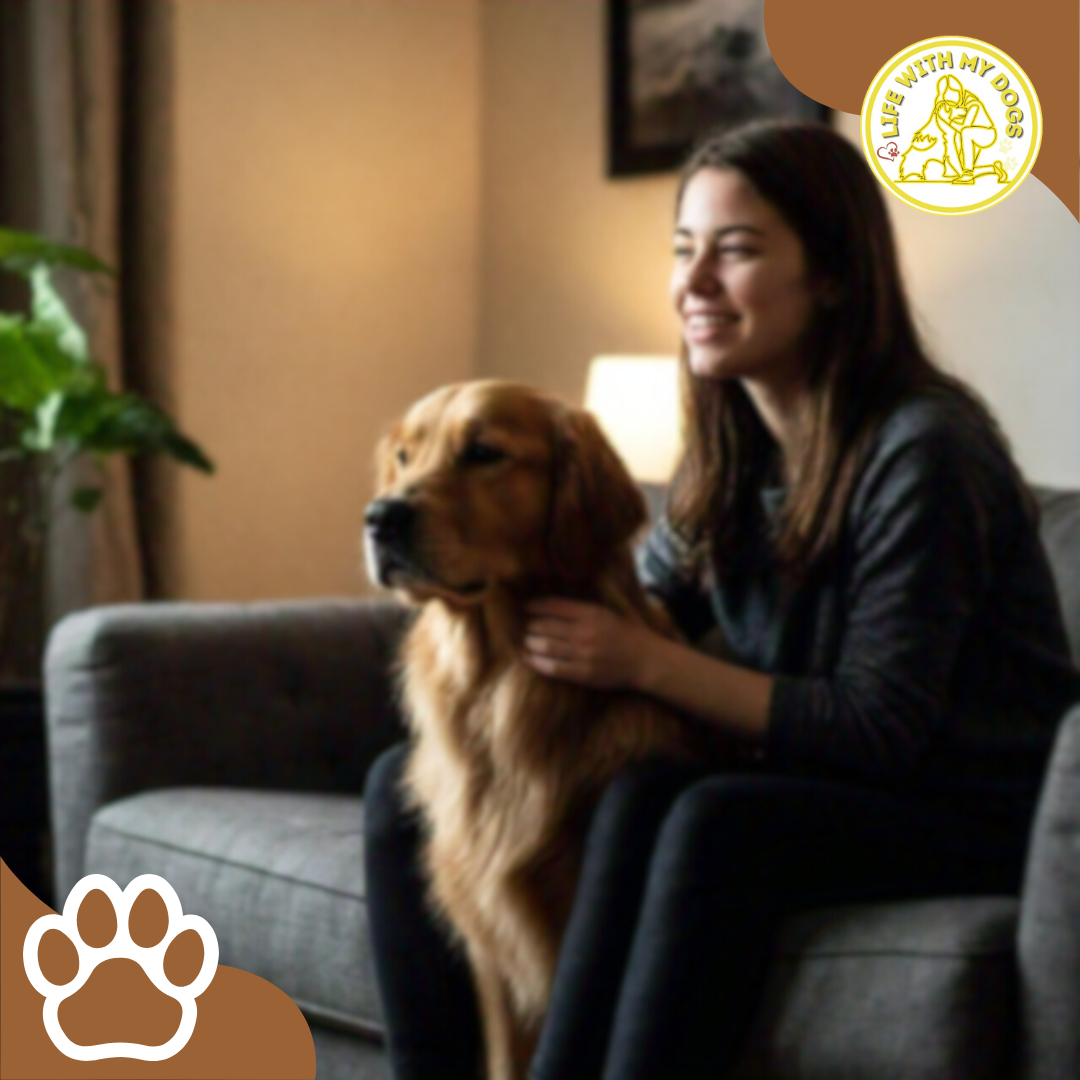
Using Calming Aids and Anxiety Wraps
Anxiety wraps like Thundershirts can help some dogs feel more secure. They work by giving gentle pressure, like a hug.
Calming aids come in many forms. You can try calming treats, pheromone diffusers, or special calming collars. CBD products made for dogs are another option some pet owners use.
Be careful with new products. Start with a small dose to see how your dog reacts. Not all aids work for every dog.
Remember to put any anxiety wrap on before the fireworks start. This helps your dog link the wrap to feeling calm, not scared.
The Role of a Veterinarian
Talk to your vet if your dog has severe fireworks anxiety. They can give you expert advice tailored to your pet.
Your vet may suggest medication for very anxious dogs. Common options include trazodone and gabapentin. These can help take the edge off your dog’s fear.
Vets can also check for underlying health issues that might make noise sensitivity worse. They may recommend behavior training to help your dog long-term.
Don’t give your dog any human medications without talking to your vet first. What’s safe for you might be dangerous for your pup.
Strategies to Distract and Comfort Your Dog

Keeping your dog calm during fireworks takes planning and patience. Try these methods to help your furry friend feel safe and relaxed when loud noises start.
Desensitizing Your Dog to Fireworks
Start early to help your dog get used to firework sounds. Play recordings of fireworks at a low volume while giving treats. Slowly raise the volume over time.
Keep sessions short, about 5-10 minutes. Do this a few times a week in the months before firework season.
If your dog gets scared, lower the volume. Go at their pace. The goal is to make firework sounds boring or even fun.
You can also use a thunder shirt or anxiety wrap to help your dog feel secure during desensitization sessions.
Alternative Noise Aversions
Create a comfy space for your dog with soft bedding and toys. Use white noise or calming music to block out firework sounds.
Try playing classical music or nature sounds. Some dogs like the TV or radio on. Pick something soothing without sudden loud noises.
You can use a fan or air purifier for background noise too. The steady hum can be calming for many dogs.
Consider using pheromone products. These mimic calming scents that dogs naturally produce. They come as sprays, diffusers, or collars.
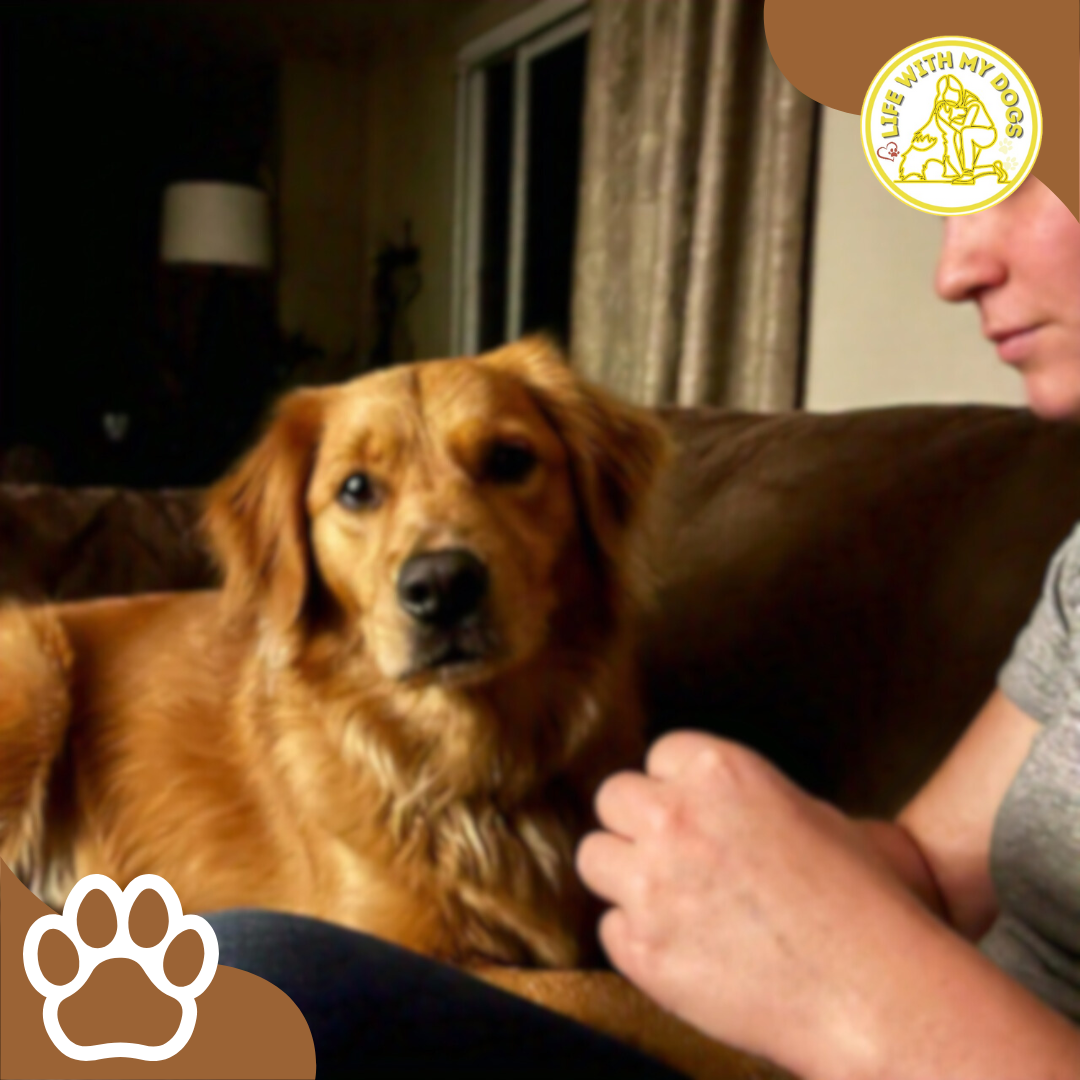
Staying Close to Your Pet
Your presence can be a big comfort to your dog. Stay with your dog during fireworks if possible. Offer gentle pets and speak in a calm, happy voice.
Try to act normal. If you seem worried, your dog might pick up on it. Play with your dog’s favorite toys or do some easy training exercises.
Give your dog a special chew toy or treat puzzle. This can keep them busy and take their mind off the noise.
If you can’t be home, ask a trusted pet sitter to stay with your dog. Make sure they know your dog’s routine and comfort items.
Post-Fireworks Care and Observation

After the fireworks end, your dog may still feel anxious. Watch for signs of stress and give extra comfort. Your care will help your pet feel safe again.
Monitoring Your Dog’s Behavior
Keep an eye on your dog’s actions. Look for signs of stress like:
• Shaking or trembling • Excessive panting • Hiding or seeking closeness • Not eating • Unusual barking
These behaviors may last for hours or days. If they don’t improve, call your vet.
Check your dog’s body for any injuries. Sometimes scared dogs can hurt themselves trying to escape. Look for scratches, cuts, or swollen areas.
Continued Comfort and Support
Give your dog extra love and attention. Gentle pets and soft words can help. Let your dog sniff around outside to relax. This natural behavior can ease stress.
Try calm activities your dog enjoys. A quiet game or a favorite toy can help. Stick to your normal routine as much as you can. Regular meals and walks provide comfort.
Consider using calming aids if your dog is still anxious. Anxiety vests or pheromone diffusers might help. Ask your vet about these options.
Holiday Fireworks and Your Dog: A Guide to Keeping Your Furry Friend Calm
The holiday season is a time of joy and celebration, but it can also be a stressful time for our furry friends. The loud bangs and bright flashes of fireworks can trigger anxiety and fear in many dogs. As pet owners, it’s our responsibility to ensure their well-being during these festive occasions.
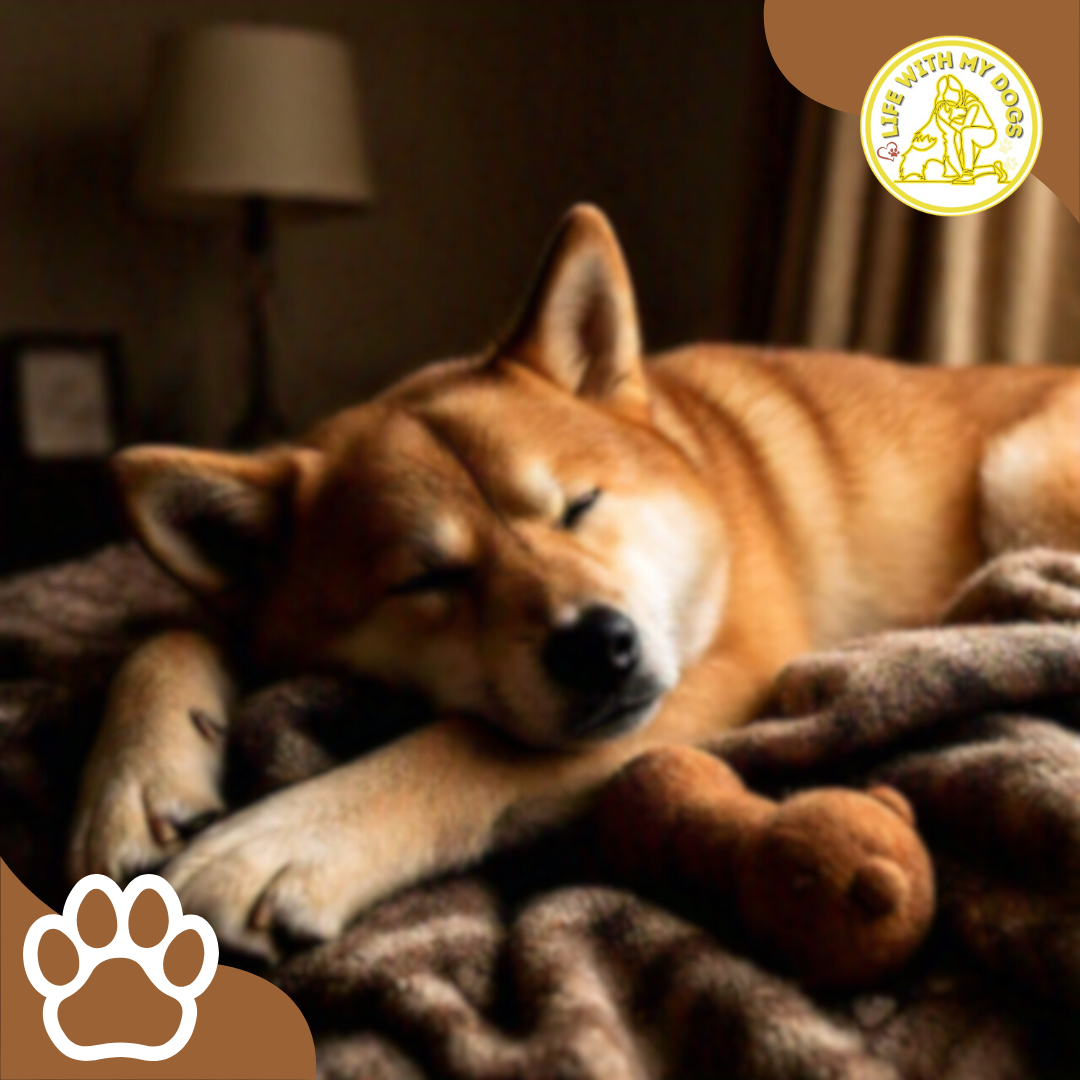
Throughout this article, we’ve explored the various ways in which fireworks can affect our dogs, from the physiological impact of loud noises to the behavioral changes we may observe. We’ve also discussed a range of strategies to help your dog stay calm and safe, including creating a safe space, using calming techniques, and seeking professional advice when necessary.
As pet lovers, we understand the deep bond we share with our dogs. They are more than just pets; they are family. It’s during times of stress and anxiety that this bond becomes even more important. By taking proactive steps to alleviate their fears, we can ensure that the holidays remain a joyful experience for both you and your furry companion.
Let’s work together to make this holiday season a peaceful one for all our pets. By following these guidelines and seeking professional advice when needed, we can help our dogs feel safe and secure, even amidst the noise and excitement.
Frequently Asked Questions

Fireworks can be scary for dogs. There are many ways to help your furry friend feel safe and calm during celebrations. Let’s look at some common questions pet owners have about dogs and fireworks.
How can I help my dog deal with their fear of fireworks?
Create a safe space for your dog before the fireworks start. This can be a quiet room or their crate. Add blankets and toys to make it cozy.
Play white noise or calming music to mask the sound of fireworks. Stay with your dog if possible. Your presence can be very comforting.
What home remedies can assist a dog that's scared of fireworks?
Try a pressure wrap like a Thundershirt. It can help your dog feel secure.
You can also use lavender oil in a diffuser. Its scent may have a calming effect.
Give your dog a special treat or toy to distract them. A puzzle toy filled with treats can keep their mind busy.
What are safe ways to calm a dog during fireworks?
Ask your vet about anti-anxiety medications. They might recommend something to help your dog relax.
Natural supplements like melatonin can also be helpful for some dogs.
Exercise your dog earlier in the day. A tired dog may be less anxious later.
Keep your dog indoors during fireworks displays.
What are the signs my dog is anxious about fireworks?
Watch for trembling, panting, or pacing. Your dog might try to hide or become clingy.
Some dogs may bark excessively or have accidents in the house.
Refusing to eat or seeming restless are also signs of anxiety. Pay attention to changes in your dog’s behavior during fireworks.
How can I prevent my dog from being traumatized by fireworks?
Start desensitizing your dog to firework sounds well before the holiday.
Play recordings of fireworks at a low volume while giving treats. Gradually increase the volume over time.
Create positive associations with firework-like sounds. This can help your dog stay calmer during real fireworks.
Are there any health risks to my dog from fireworks exposure?
Anxiety from fireworks can cause stress-related health issues. In rare cases, very loud fireworks might damage a dog’s sensitive hearing.
Some dogs might try to run away due to fear. Make sure your dog has proper ID tags and a microchip in case they escape.
Join the Pawsitive Community!
Want to keep your furry friend happy and healthy? Follow us on social media for expert advice, heartwarming stories, and fun dog-related content.
- Facebook: https://www.facebook.com/1LWMD
- Instagram: https://www.instagram.com/lifewithmydogs2/
- Pinterest: https://www.pinterest.com/lifewithmydogs2/
- X: https://www.x.com/LifeWithMyDogs9
- YouTube: https://www.youtube.com/@lifewithmydogs830
Together, let’s create a paw-sitive impact on the lives of our furry companions.
